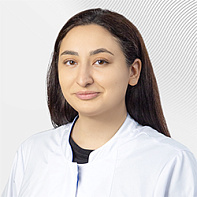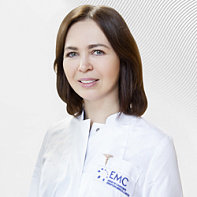Vaccination
Seasonal vaccination
Emergency vaccination
- Tetanus vaccination (Tetanus toxoid)
- Vaccination against chickenpox
- Measles vaccination (72 hours from the moment of contact)
- Vaccination against hepatitis A – 10 days from the moment of contact
- Hepatitis B vaccination – 72 hours from the moment of contact
Routine vaccination
- Vaccination against tuberculosis (BCG)
- Measles vaccination
- Rubella vaccination
- Vaccination against mumps
- Vaccination against pneumococcal infection
- Vaccination for the prevention of diphtheria, tetanus, pertussis, polio
- Vaccination against diphtheria, tetanus, pertussis (Infanrix Hexa)
- Vaccination against diphtheria and tetanus (Diphtheria tetanus toxoid)
- Vaccination against rotavirus infection (Rota-V-Aid) for children
- Vaccination against viral hepatitis B
- Vaccination for the prevention of meningococcal infection (Menactra)
- HPV vaccination
- Vaccination against tick-borne encephalitis
- Vaccination against herpes (Vitagerpavac)
- Vaccination against respiratory syncytial infection.
Vaccination for travelers
- Vaccination against viral hepatitis A
- Vaccination against yellow fever
- Vaccination against typhoid fever (Vianvak)
- Vaccination against dysentery (Shigellvak)
- Cholera vaccination

Why do I need to get vaccinated
Vaccination is the easiest way to protect against dangerous diseases.
According to the National Vaccination Calendar, adults are vaccinated against diphtheria and tetanus, children are vaccinated against tuberculosis, hepatitis B, measles, rubella, mumps, diphtheria, whooping cough, tetanus, hemophilic and pneumococcal infections, polio.
In addition, there are vaccines that are not included in the National Calendar, but our experts recommend making them to maximize the protection of the child's health.
It is especially important to vaccinate babies — their immunity is still being formed. Vaccination helps to avoid many complications after infectious diseases. By estimates
And vaccination is also a way to protect those for whom vaccinations are contraindicated. For example, newborns, some people with allergies, and people with serious illnesses. Their protection from vaccine-preventable diseases depends on the availability of vaccinations from others.
There are not many contraindications for vaccination. Some vaccines are contraindicated in the following conditions and diseases:
To find out for sure if you or your child can get vaccinated, contact your therapist or to the pediatrician.
Contraindications to vaccination
How is the vaccination
Advantages of vaccination in EMC
Doctors




















- Under the leadership of M.M. Kaabak, programs for the treatment of patients with severe diseases have been created and continue to function: the kidney transplantation program for adults and children of the B.V. Petrovsky Russian National Research Medical Center and the kidney transplantation program of the FSAU National Research Medical Center for Children's Health
- In the personnel reserve of the Federal Center for Disaster Medicine of the Ministry of Health of the Russian Federation since February 2025




